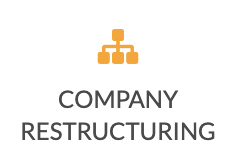Independent, Third-Party Business Valuations
If a client wishes to establish the market value of their business they may inquire about a business valuation. It may arise, for instance, when they are considering selling the business, issuing shares to key employees, restructuring their affairs or engaging in next-generation planning. Alternatively, an independent valuation may be required to settle a shareholder dispute or for grant-of-probate purposes.
In the majority, if not all, of these cases, there are tax implications. Therefore, an incorrect or unsubstantiated valuation, detected through a subsequent audit, intervention or aspect query, may lead to Revenue imposing tax, interest and penalties.
In the event of a Revenue intervention, it is vital that a formal valuation exists to support the value placed on the business – and, in such cases, an independent valuation is usually perceived to be stronger than a valuation performed by the client’s own tax advisors.
Likewise, new shareholders coming into a business may perceive the company’s own accountant to be biased towards existing shareholders and may look for a valuation from an independent party.
How We Can Help

At OmniPro, we work with practices across Ireland, providing valuations for small, medium and large companies, across a broad range of industries. Moreover, our work at the centre of business purchase and sale transactions gives us constant exposure to the prices companies are achieving in the marketplace.

So, whether providing a valuation is not part of what you are comfortable doing or you need the independence of a third-party valuation for Revenue or shareholder purposes, we can work directly with your clients or indirectly through your practice. We will adapt to suit your requirements.
With the benefit of over 15 years valuing businesses, we have developed a unique approach, based on four main techniques:
- The net assets basis
- The earnings valuation
- The discounted cashflow valuation
- The dividend yield basis
- Commercial valuation basis
Our team can help navigate these options and determine the most suitable strategy for your unique circumstances.
Business Valuations – In Detail
We tailor our approach for every client to produce a detailed report, designed to stand up to scrutiny from Revenue and external parties. The typical steps involved include the following:
- Initial discussion with the firm and the client (if required)
- Detailed discussions with the client to gain a thorough understanding of the business and to assess the purpose of the valuation
- Advice on the possible tax implications of a proposed course of action for which the valuation is being performed (where required)
- A review of the last three years’ financial statements
- A review of the most up-to-date management accounts
- A review of forecast results
- A detailed review of the trade and non-trade assets on the balance sheet to include adjustments to be made to reflect assets at market value
- An assessment to determine adjustments to be made for non-trade items, non-market-rate salaries/costs, non-recurring exceptional items, unusual costs, etc.
- Presentation, review and discussion of the results with the client
- Issue of the draft report and valuation





